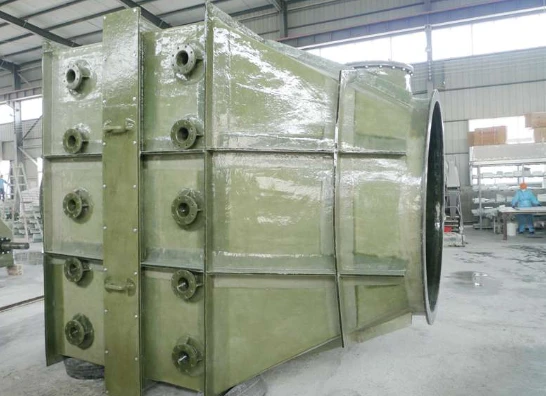
-
 Afrikaans
Afrikaans -
 Albanian
Albanian -
 Amharic
Amharic -
 Arabic
Arabic -
 Armenian
Armenian -
 Azerbaijani
Azerbaijani -
 Basque
Basque -
 Belarusian
Belarusian -
 Bengali
Bengali -
 Bosnian
Bosnian -
 Bulgarian
Bulgarian -
 Catalan
Catalan -
 Cebuano
Cebuano -
 China
China -
 China (Taiwan)
China (Taiwan) -
 Corsican
Corsican -
 Croatian
Croatian -
 Czech
Czech -
 Danish
Danish -
 Dutch
Dutch -
 English
English -
 Esperanto
Esperanto -
 Estonian
Estonian -
 Finnish
Finnish -
 French
French -
 Frisian
Frisian -
 Galician
Galician -
 Georgian
Georgian -
 German
German -
 Greek
Greek -
 Gujarati
Gujarati -
 Haitian Creole
Haitian Creole -
 hausa
hausa -
 hawaiian
hawaiian -
 Hebrew
Hebrew -
 Hindi
Hindi -
 Miao
Miao -
 Hungarian
Hungarian -
 Icelandic
Icelandic -
 igbo
igbo -
 Indonesian
Indonesian -
 irish
irish -
 Italian
Italian -
 Japanese
Japanese -
 Javanese
Javanese -
 Kannada
Kannada -
 kazakh
kazakh -
 Khmer
Khmer -
 Rwandese
Rwandese -
 Korean
Korean -
 Kurdish
Kurdish -
 Kyrgyz
Kyrgyz -
 Lao
Lao -
 Latin
Latin -
 Latvian
Latvian -
 Lithuanian
Lithuanian -
 Luxembourgish
Luxembourgish -
 Macedonian
Macedonian -
 Malgashi
Malgashi -
 Malay
Malay -
 Malayalam
Malayalam -
 Maltese
Maltese -
 Maori
Maori -
 Marathi
Marathi -
 Mongolian
Mongolian -
 Myanmar
Myanmar -
 Nepali
Nepali -
 Norwegian
Norwegian -
 Norwegian
Norwegian -
 Occitan
Occitan -
 Pashto
Pashto -
 Persian
Persian -
 Polish
Polish -
 Portuguese
Portuguese -
 Punjabi
Punjabi -
 Romanian
Romanian -
 Russian
Russian -
 Samoan
Samoan -
 Scottish Gaelic
Scottish Gaelic -
 Serbian
Serbian -
 Sesotho
Sesotho -
 Shona
Shona -
 Sindhi
Sindhi -
 Sinhala
Sinhala -
 Slovak
Slovak -
 Slovenian
Slovenian -
 Somali
Somali -
 Spanish
Spanish -
 Sundanese
Sundanese -
 Swahili
Swahili -
 Swedish
Swedish -
 Tagalog
Tagalog -
 Tajik
Tajik -
 Tamil
Tamil -
 Tatar
Tatar -
 Telugu
Telugu -
 Thai
Thai -
 Turkish
Turkish -
 Turkmen
Turkmen -
 Ukrainian
Ukrainian -
 Urdu
Urdu -
 Uighur
Uighur -
 Uzbek
Uzbek -
 Vietnamese
Vietnamese -
 Welsh
Welsh -
 Bantu
Bantu -
 Yiddish
Yiddish -
 Yoruba
Yoruba -
 Zulu
Zulu
frp trough cover protective solutions for industrial applications
Protective Solutions FRP Trough Covers for Industrial Applications
In the fast-paced world of industrial operations, safeguarding both personnel and equipment is paramount. One effective solution to ensure safety, efficiency, and longevity of industrial facilities is the use of Fiber Reinforced Polymer (FRP) trough covers. These covers play a crucial role in various applications, ranging from waste management to chemical processing, by providing robust protective barriers that withstand harsh environments.
Understanding FRP Trough Covers
FRP trough covers are made from a composite material that combines plastic with glass fibers. This unique combination results in an exceptionally strong and lightweight product that is resistant to corrosion, impacts, and temperature variations. Unlike traditional materials like metal or concrete, FRP offers several distinct advantages, making it an ideal choice for industrial applications.
Advantages of FRP Trough Covers
1. Corrosion Resistance One of the primary benefits of FRP materials is their resistance to corrosive substances. In industries where chemicals, oils, or other caustic materials are present, traditional materials can degrade over time. FRP trough covers maintain their integrity, ensuring long-term performance without the risk of rust or corrosion.
2. Lightweight and Easy to Install The lightweight nature of FRP helps in reducing transportation costs and simplifies the installation process. Workers can handle these covers with ease, leading to quicker installation times and enhanced worker safety during the setup.
3. Customizability FRP trough covers can be tailored to fit specific dimensions and requirements of an application. They can be manufactured in various thicknesses, colors, and surface finishes to meet the aesthetic and functional needs of a facility.
4. Temperature Resistance In many industrial environments, temperatures can fluctuate significantly. FRP can withstand a wide range of temperatures, making it ideal for applications that involve extreme heat or cold without compromising its structural integrity.
frp trough cover protective solutions for industrial applications

5. Safety The non-conductive nature of FRP materials also enhances safety. In environments where electrical hazards are a concern, FRP trough covers provide a safe alternative as they do not conduct electricity.
Applications in Various Industries
FRP trough covers are utilized across a myriad of industries. In the wastewater treatment sector, these covers protect personnel from potentially harmful substances while preventing contaminants from escaping into the environment. In the chemical processing industry, the chemical resistance of FRP ensures that the covers can contain spills, protecting both the environment and the workforce.
Furthermore, FRP trough covers are effective in food processing environments, where hygiene is critical. Their smooth surface can be cleaned easily, minimizing the risk of contamination.
Environmental Benefits
In addition to their functional advantages, FRP trough covers contribute to environmental sustainability. Their durability means less frequent replacements, which reduces waste. Additionally, many FRP products are made from recycled materials, promoting a circular economy within industrial operations.
Conclusion
As industrial operations continue to evolve, the need for robust and reliable protective solutions becomes increasingly essential. FRP trough covers stand out as a versatile, durable, and effective option for a variety of applications. Their lightweight nature, customizability, and resistance to harsh conditions make them an ideal choice for industries looking to enhance safety while maintaining efficiency. By investing in these protective solutions, businesses can ensure safer working environments and minimize risks associated with industrial operations, ultimately leading to increased productivity and sustainability.









